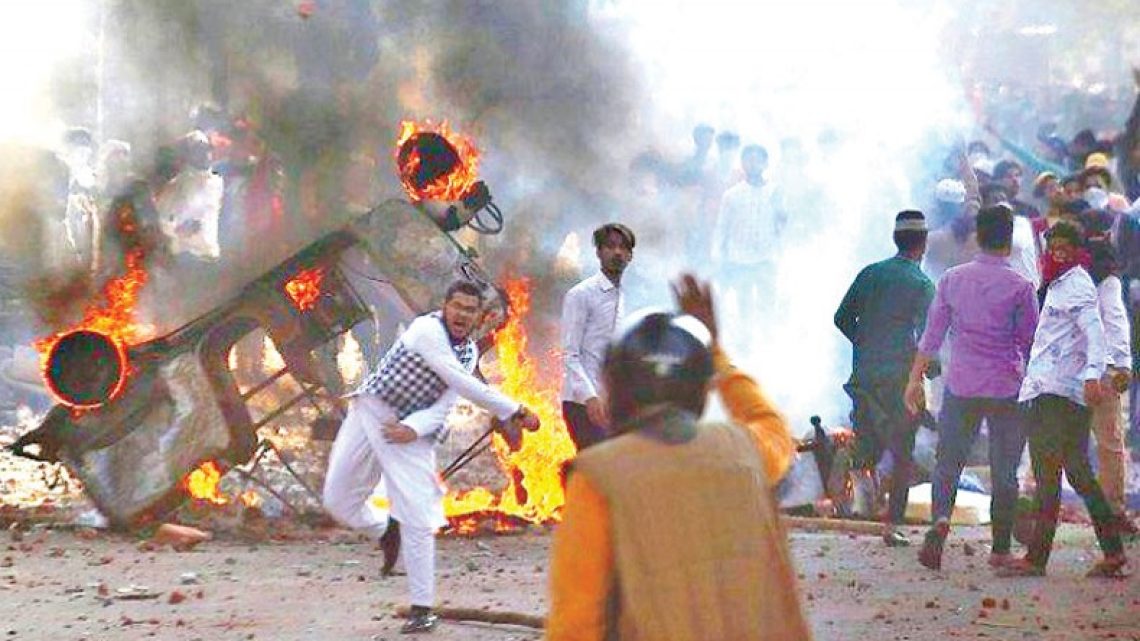
Escalating Religious Intolerance in India: A Threat to Communal Harmony
January 28, 2024India is currently facing a perilous surge in hatred and violence against religious minorities, particularly Muslims, Christians, and Dalits. This alarming trend is sparking serious concerns about religious tolerance and communal harmony in the country. Recent incidents in various parts of India underscore the urgent need to address this issue, which is tearing at the fabric of what India once proudly called itself—a secular and democratic nation.
The rise in hate attacks on Muslims has become particularly noticeable in the aftermath of the inauguration of the disputed Ram Temple in Ayodhya on January 22. In some cases, Muslims have found themselves at the mercy of violence as the state machinery either connived with the mobs or turned a blind eye.
One disturbing incident involved a Muslim teenager in Telangana, who was assaulted and paraded naked by a mob chanting Hindutva religious slogans for allegedly disrespecting a saffron flag. Shockingly, the assailants set fire to the victim’s private parts, capturing the horrific act on video and sharing it on social media platforms. This incident occurred as Prime Minister Narendra Modi was inaugurating the temple built on the ruins of the Babri Masjid.
In Mumbai, Hindutva mobs ransacked shops, damaged vehicles, and assaulted several people in the wake of violence that erupted in the city’s Mira Road suburb. Clashes between Muslims and Hindutva groups occurred when the latter insisted on a procession passing through a Muslim neighborhood against police objections. The aftermath saw the bulldozing of Muslim shops in Mira Road’s Naya Nagar.
Instances of harassment also emerged in Dehradun, Uttarakhand, where a Muslim shop manager faced mistreatment by a group of Hindutvas over a poster of Hindu deity Ram. The mob not only hurled communal slurs but also attacked Muslim employees.
In Karnataka, two Muslim teenagers were brutally attacked by a Hindutva group, suggesting a planned and targeted assault. Similarly, in Uttar Pradesh, a 28-year-old vegetable seller, Mohammad Bilal, died in a police “shootout,” raising questions about the circumstances of his death. In another incident in Lucknow, a catering contractor filed a police complaint against a customer who refused to pay dues upon learning that Muslim waitresses were employed at his daughter’s wedding party.
On the day of the temple’s inauguration, a Hindutva mob hoisted a saffron flag with a picture of Ayodhya’s Ram temple on a church in Madhya Pradesh. Simultaneously, a Muslim youth, Mehdi Hasan, was brutally attacked and killed in Noida. The incident, captured on CCTV, showed assailants assaulting Hasan with a knife and dragging him throughout the village until his death. In Kannauj, Uttar Pradesh, there was an attempt to vandalize the 400-year-old Muslim shrine of Pathan Shah Baba, triggering public outrage.
These incidents highlight the pressing need for authorities and society to address the escalating religious intolerance, discrimination, and violence. It is crucial to reaffirm the values of religious acceptance and communal harmony to preserve the diverse and inclusive spirit that India has long prided itself on. As the nation grapples with these challenges, it becomes imperative to foster an environment where all citizens can coexist peacefully, irrespective of their religious affiliations.

